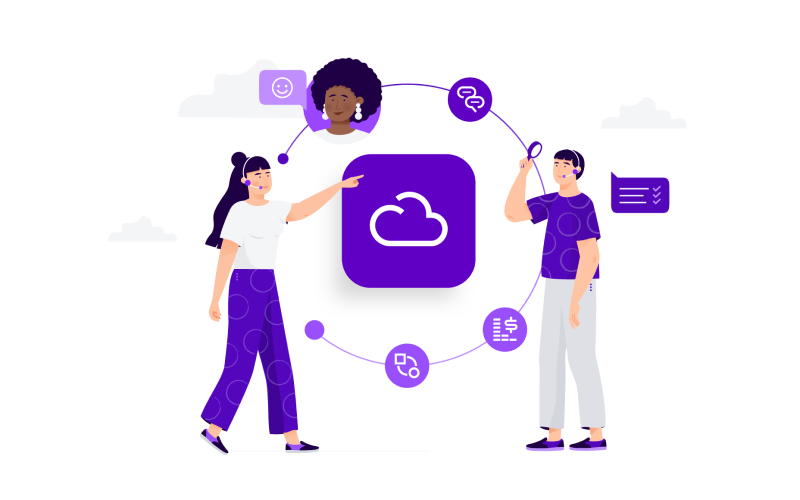In today's fast-paced digital age, cloud computing has emerged as a revolutionary technology that is changing the way businesses operate and individuals access information. It's a game-changer that has seamlessly integrated itself into our lives, offering a wide array of benefits and transforming the way we work, communicate, and store data
Cloud computing is a technology that lets you do things like accessing data, running apps, and doing tasks online instead of using your own computer. It changes the way we usually use computers by moving everything to the internet.
Key Benefits of Cloud Computing:
Scalability: One of the most significant advantages of cloud computing is its scalability. Businesses can easily scale up or down their computing resources based on demand. This means you don't have to invest in expensive hardware infrastructure that may become obsolete over time. You can simply pay for the resources you need when you need them.
Cost-Efficiency: Cloud computing can significantly reduce IT costs. With no need for large upfront investments in hardware and reduced maintenance expenses, businesses can reallocate their budget to other strategic areas. Pay-as-you-go pricing models ensure you only pay for what you use, making it a cost-effective solution.
Flexibility and Accessibility: Cloud services are accessible from anywhere with an internet connection. This flexibility enables remote work, collaboration, and seamless access to resources, fostering productivity and innovation. It's the backbone of the modern digital workplace.
Reliability and Disaster Recovery: Cloud providers invest heavily in infrastructure, security, and redundancy, making them more reliable than many on-premises solutions. Data is often stored in multiple locations, providing robust disaster recovery options.
Security: Leading cloud providers invest heavily in security measures, ensuring data is encrypted and protected against cyber threats. While security remains a shared responsibility, cloud providers offer robust tools and technologies to help users safeguard their data.
Real-World Applications:
Cloud computing's impact extends across various industries:
Business and Enterprise: Organizations use cloud services for hosting websites, managing customer data, running applications, and data analytics.
Education: Cloud-based learning management systems and virtual classrooms enable seamless online education.
Healthcare: Electronic health records, telemedicine, and medical research rely on secure cloud storage and processing.
Entertainment: Streaming services, gaming platforms, and content distribution leverage cloud infrastructure to reach global audiences.
IoT: Internet of Things devices rely on cloud computing for data storage, processing, and remote management.







